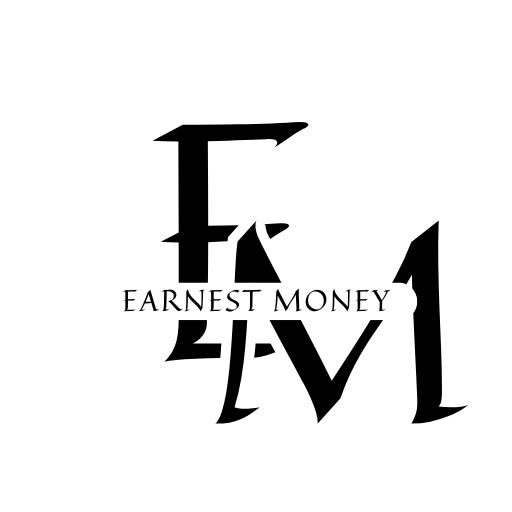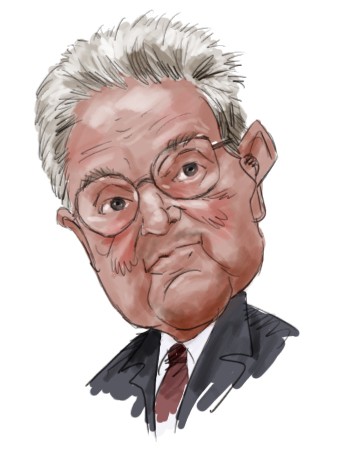- With BTC stagnant, Solana surges 6% – Time to add SOL to your portfolio?
- Will SJM’s Coffee and Snacks Portfolio Drive Success in 2025? – January 3, 2025
- A Small $500 Portfolio Could Explode to $100000 in 7 Weeks with This Shiba Inu (SHIB) Alternative.
- Consumer Portfolio Services: Added To Watchlist (NASDAQ:CPSS)
- Lazard Managed Equity Volatility Portfolio Q3 2024 Commentary (undefined:MEVIX)
Family Finance: Great-grandparents Paul and Jennifer, both in their 70s, seek help to simplify their investments
Reviews and recommendations are unbiased and products are independently selected. Postmedia may earn an affiliate commission from purchases made through links on this page.
Article content
A big family with children, grandchildren and great-grand-children all doing well, an active retirement with travel and sports and no financial worries – Paul and Jennifer* were enjoying life until about a year ago. That’s when the longtime married couple, both in their 70s, developed long-COVID and everything changed.
Article content
Article content
“We went from being very fit and active to barely walking a block and not able to rely on our cognitive abilities,” said Jennifer, who is no longer able to manage the couple’s $2 million investment portfolio and wants help to simplify their investments, which include term deposits, various equity and income exchange traded funds (ETFs), stocks held in registered and unregistered accounts, and the transition of their estate.
Advertisement 2
Article content
“Later this year we plan to gift $1 million to our family, which I expect will still leave them a future inheritance consisting of at least $750,000 (net present value),” she said. However, due to the unpredictability of long-COVID Paul and Jennifer have no way of estimating their future health-care needs.
“We just started incurring costs to get nursing care at home. I’m projecting $5,500 this coming year, doubling yearly for four years, and then increasing with inflation,” said Jennifer. “This is a wild guess. I couldn’t find any stats to base it on. Is this something the expert could advise on?”
Xem thêm : Three Undiscovered Gems To Enhance Your Portfolio
Paul and Jennifer are considering moving into an assisted living care home but due to the unpredictability of long-term COVID, they have no way of estimating future health-care needs. “No one knows enough about long-COVID for there to be any actuarial data. If our disability stays at today’s level, we won’t be incurring the cost of care aides or have to move to assisted living. But, on the other hand, we’re eligible for Medical Assistance In Dying, which we plan to use when it suits us,” said Jennifer.
Article content
Advertisement 3
Article content
Paul and Jennifer are debt-free and own a home valued at $750,000, which will be sold when they no longer live there. They also own a cottage valued at approximately $450,000, which will be passed on to their family, who are on title, and 50 per cent interest in a $300,000 property that will be sold in five years.
Their investment portfolio includes: $65,000 in cash; $240,000 in Tax Free Savings Accounts (TFSA) that hold ETFs, bonds, equities, income and money market funds; C$940,000 and US $190,000 in Guaranteed Investment Certificates (GICs); $100,000 in Registered Income Funds (RIF); $150,000 in a Life Income Fund (LIF); US$60,000 invested in stocks trading on the New York Stock Exchange and $330,000 invested in stocks tracking on the Toronto Stock Exchange; US$210,000 in bonds on the NYSE and $185,000 in bonds on the TSX; and a $45,000 personal note.
A $250,000 life insurance policy is in place to cover capital gains on the recreational property, income taxes, and unexpected expenses after both Paul and Jennifer die.
The couple average about $7,100 in dividends and $20,100 in interest income and they receive $76,500 after taxes a year from Jennifer’s employer defined benefit pension plan (split with Paul) and Canada Pension Plan and Old Age Security benefits. Their total annual cash flow is $133,000 which includes tax payments not taken at source.
Advertisement 4
Article content
“I usually sit down when a GIC is coming due (they are laddered over five years), estimate my needs and TFSA transfers between now and the next one, and that’s what I take out. I’ve been taking out the maximums in our LIFs and RIFs, to reduce the tax bill when we die,” said Jennifer.
“How can we simplify our investments to make sure they are easy to manage and ensure we have enough to meet our uncertain cash flow needs,” asked Jennifer. “We are extremely risk averse. We also want to leave our executor with as little work as possible.”
What the expert says
Graeme Egan, a financial planner and portfolio manager who heads CastleBay Wealth Management Inc. in Vancouver, said that while Jennifer and Paul are in a tough and unknown medical situation, financially, they are in a solid position.
“They have done a great job of growing their wealth by building and maintaining a diversified portfolio of investments.” That said, while they describe themselves as being extremely risk averse their portfolio does not reflect this. Egan recommends trimming equity holdings to about 20 percent with the balance (80 percent) in fixed-income type investments.
Advertisement 5
Article content
“I am glad they are using ETFs to a certain degree as they are low cost, transparent and diversified. If Jennifer is no longer interested in stock picking and researching, then I would encourage her to use more ETFs for Canadian, U.S. and international equity exposures, since it’s important to be geographically diversified, too. Index-based ETFs are the lowest cost and follow an underlying index which is easy to monitor.”
For the fixed income portion of the portfolio, Egan suggests moving the proceeds from their GICs as they mature to bond ETFs, which pay monthly interest and could help address increases in medical expenses that exceed their pensions. “If they are not interested in picking bond ETFs, selecting an Aggregate Bond ETF, which is available with short, medium and long-term maturities and invested in a variety of both government and corporate bonds would be an easy, simple, low-cost solution going forward. Bank of Montreal, Royal Bank of Canada iShares and Vanguard are a few ETF sponsors that offer Aggregate bond ETFs.
“These bond ETFs are still considered conservative for risk profile purposes,” said Egan.
Advertisement 6
Article content
To further limit volatility, Jennifer and Paul could make their LIFs and RIFs 100 percent fixed income while keeping the equity ETFs in their respective TFSAs as well as in a cash/margin account to take advantage of the Dividend Tax credit as well as capital gains, which are also taxed at a preferential rate in Canada, he said.
“The $250,000 Life insurance policy will be a good offset for capital gains taxes on the cottage and unexpected expenses. They should also be aware of any tax liability arising from the sale of the $300,000 property in five years.”
Recommended from Editorial
-
![A pedestrian wearing mask in front of a sign advertising hiring in Toronto.
[Peter J Thompson] [National Post story by TBA/National Post]](https://smartcdn.gprod.postmedia.digital/nationalpost/wp-content/uploads/2023/03/long-covid-vw0314.jpg?h=96&strip=all&quality=80&sig=RSWb3DKsafuRD9EKRKV-Ow)
How long COVID could wreak havoc on Canada’s labour market
-

Do mutual funds make sense for someone who is retired?
-

B.C. couple, both 49, wonder if retiring at 60 is possible
Egan believes their plan to give their children $1,000,000 this year is premature and suggests they wait until they have more clarity about their health and living situation going forward. “If they move out of their house, they could consider using that money as a gift to their family then, instead of selling anything in the portfolio, which might incur taxes.”
Advertisement 7
Article content
To really simplify their investments, Egan said they could consider turning over their combined portfolio to a registered portfolio manager who is a fiduciary and who could consolidate and manage it with a focus on tax effectiveness. “Some research would be required up front to understand the terms of services, approach, investment vehicles and fees but once it is set up, it would be a much easier process and less stressful for all.”
* Names have been changed to protect privacy.
Bookmark our website and support our journalism: Don’t miss the business news you need to know — add financialpost.com to your bookmarks and sign up for our newsletters here.
Article content
Nguồn: https://earnestmoney.skin
Danh mục: News



















